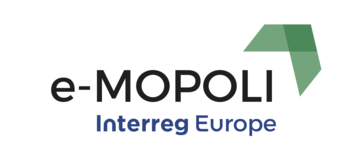[NEWS] Progress of the regional action plan
The feasibility study was finalised and PP6 worked on their action plan, and revised it to be better aligned with Kainuu opportunities and policy frameworks.
The feasibility study was finalised on 6.3.2020, including also steering meetings and discussions between the expert and Regional Council of Kainuu (PP6). A regional stakeholder group meeting and learning event was organised on May 6th 2020, on line.
The recommendations of the feasibility study are taken into account in Kainuu in four ways: (i) the request for an alternative mobility strategy as part of the regional development programme was accepted; (ii) Research projects liaising with innovative solutions will be considered in the forthcoming revised Kainuu RIS3 ; (iii) Prioritisation of recommendations for the Kainuu eMOPOLI action plan; (iv) finally, the analysis and recommendations from the feasibility study impacted also the Improvement needs and the Self-defined indicators.
During June and July 2020, PP6 worked further on their action plan, and revised it to be better aligned with Kainuu opportunities and policy frameworks. Three instea dof two Actions are foreseen, Action 1 reinforcing the institutional level as an enabling framwork, Action 2 supporting the development of a biogas market in Kainuu, and Action 3 investing in synthetic fuels research (Figure 1).

Figure 1. The revised Kainuu Action Plan
The revised action plan benefits from the following eMOPOLI good practices:
Action 1
Activity 1.1
- GP 16 Regional Strategy and Guidelines for Electric Mobility; with focus on integration of charging infrastructure and charging hubs in spatial planning, from Lombardy, Italy.
- GP 18 Regional and provincial guidelines for electric charging infrastructure; with focus on integration of charging infrastructure and charging hubs in spatial planning, from Brescia, Italy.
Activity 1.2
- GP 24 Demo project of three battery buses, from Rogaland, Norway.
Action 2
- GP14 Development of charging infrastructure, from Bucharest, Romania. To accelerate the transition towards clean emission trasport according to the obligations of the European Directive 2014/94/EU regaridng the deployment of alternative fuels infrastructure.
- GP30 Green Deal instrument, from Flanders, Belgium. The Flemish government initiated the Green Deal instrument, a voluntary agreement between partners and the Flemish Government to pursue specific environmentally-related goals, making use of the dynamics, creativity and knowledge of the different partners. Moere than 100 public and private parties signed the Green Deal Shared Mobility, ioncluding car hiring organisation, local governemnt, academics, development actors… .
Action 3
The purpose of Action 3 is to support innovation in alternative fuels as revealed by the feasibiltiy study and as foreseen in the Revised Clean Vehicles directive (EU) 2019/1161) and the national legislation. It is not corresponding to any eMOPOLI GPs, however, it would not have been identified without the eMOPOLI exchange, the Recommendations made by the National Technical University of Athens (RIS3: e-mobility in relation to RIS3 Smart Specialization Strategy documents. R1: Kainuu RIS3 is emphasizing on alternative fuels and circular economy. This will be reinforced. Electrical mobility is not part of the RIS3. Kainuu RIS3 is aligned with national priorities as well. The Kainuu RIS3 will be revised till the end of 2019), and the feasibility study. So we decided to propose it, even if it is not reflecting a GP transfer.
The revised Action plan is meant to also organise a framework form longer initiatives. For example, the Alternative Mobility Startegy, will be an input to the Kainuu Regional Development Programme. It is the overall isntitutional level enabler. It aims at promoting alternative mobility and fuels in Kainuu, supporting Kainuu’s sustainable strengths in biogas, and ensuring Kainuu benefits as well from national and European level alternative mobiltiy approaches (Figure 2). One of the objectives of the revised action plan is, as part also of the Alternative Mobility Strategy, to enhance the readiness of regional actors to compete for Horizon EUROPE funding, and especially those related to the Horizon Europe (5 (‘Climate, Energy and Mobility’).

Figure 2. Kainuu Alternative Mobility strategy approach


![[NEWS] Brescia: E-bike sharing in Brescia](/fileadmin/user_upload/tx_tevnewsevents/news/image_1664960602.jpg)
![[NEWS] Rogaland: battery-only high speed craft](/fileadmin/user_upload/tx_tevnewsevents/news/image_1664804367.png)
![[NEWS] BSC: promoting e-mobility in Gorenjska](/fileadmin/user_upload/tx_tevnewsevents/news/image_1660136312.png)
![[NEWS] BSC: new opportunities for cooperation](/fileadmin/user_upload/tx_tevnewsevents/news/image_1660136159.jpg)
![[NEWS] Rogaland: Solar power for electric airplanes](/fileadmin/user_upload/tx_tevnewsevents/news/image_1660135530.jpg)
![[NEWS] Bucharest: decarbonization of transports](/fileadmin/user_upload/tx_tevnewsevents/news/image_1656521459.jpg)
![[NEWS] Calabria: CENTRE FOR SUSTAINABLE MOBILITY](/fileadmin/user_upload/tx_tevnewsevents/news/image_1655983407.png)
![[NEWS] BSC: rental system network for bikes](/fileadmin/user_upload/tx_tevnewsevents/news/image_1655967495.png)
![[NEWS] Attica: Electromobility in Paiania](/fileadmin/user_upload/tx_tevnewsevents/news/image_1655110894.png)
![[NEWS] Attica: First e-bike festival in Athens](/fileadmin/user_upload/tx_tevnewsevents/news/image_1655110292.png)